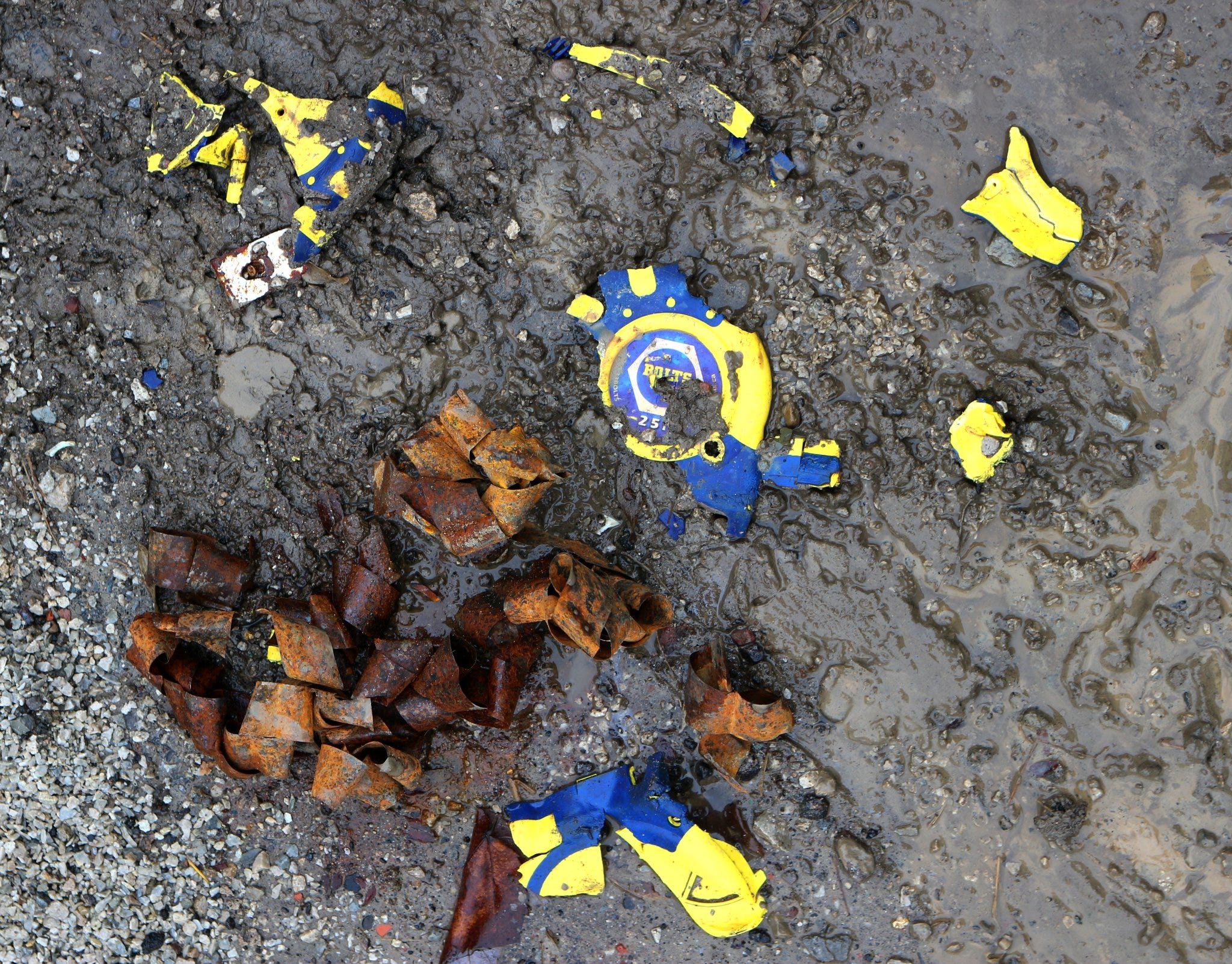Measure Twice
We all know that in our personal lives, few things are as infuriating as being told to shut up (or just plain shut-out or ignored by policy) when we have something relevant and important to add, especially when decisions which affect us are being made.
What makes for a stressful job? A job where you have no input, and thus feel in no way respected. What makes for a bad relationship? Two separate individuals filled with secrets and resentments they don't feel able to express. This principle even extends on a very broad scale to cultural groups who are shut out of popular discourse - voicelessness is seriously crazy-making stuff. It can best be measured on the bullying-scale, for sure.
Silencing isn't always clear and direct, either - we've all had discussions where someone reacted so aggressively to being contradicted that they effectively said "It is not EVER worth trying to have a rational discussion with me - because I will not be self-bounded by reason, fairness or principle." Truth will not be worth it here.
And this is where things get tricky - because of the way we've come to understand ourselves, thanks both to consumerism and mental laziness.
The sensible goal-state of a society is to find greatest benefit for most - but the goal-state for many of us as modern individualists is to find most pride and least blame wherever possible, in almost every situation. Not the same thing at all. Huge numbers of people now - left, right and middle - confuse these two perspectives, and end up righteously and furiously declaiming utter nonsense, with ultimately destructive effect.
I have long been working with an operational philosophy which requires me always to make the strongest possible argument against my own emotional preference, and take that position also into account, whenever I'm talking about matters of great complexity (all social policy questions).
The very simplest balancing-question? When we're saying how good something is - are we also asking how far it is from optimal? The flip-side is equally crucial - when we say something needs work, are we considering also how much of the system under discussion already does work, and for how many?
How much worse than perfect, and how much better than nothing are BOTH ALWAYS crucial questions. To pretend that anger over one measurement only is any sort of objective or 'political' position, is the purest narcissism - judging all of those disagreeing others who are served or harmed, to count for nothing.
The upshot of what I'm after here is that on a day-to-day basis, we are invited to choose between irrationally simplified (but emotionally appealing) positions by tribes on all sides. The balanced modest understanding faction, rather like agnostics of old, lack the fire to march, and so, even when numerous indeed, appear invisible and are often silenced disdainfully by emotionalist partisans around them, for lacking courage (simplifies to just rage, sadly-often), and thus failing to 'take sides'. (But are you a Catholic agnostic or a Protestant one?) ;o)
There are so embarrassingly-many examples of both sides arguing empty positions now that I'm tempted to go for a trivial case to avoid vexations - but these two furious sides silencing the reasonable middle debates are most vexing on the really important issues, so what the heck, might as well make everyone mad at once. Make it count and make a key point which is in fact (rather than just rhetoric) crucial to our survival.
Anyone old or curious enough to remember "The Club of Rome" and their famous report - The Limits to Growth? This was a very gloomy 1972 paper which predicted, amongst many other consequences of our irresponsible planetary stewardship, inevitable mass-starvation around the world, because population was then growing much faster than food-production. This was not merely Malthusian pessimism, either - they were working with real numbers, and they were extremely grim.
This threat was just as clearly perceived as the ozone layer breakdown - and indeed, it was also acted-upon in time to avert disaster (technology transfers caught up with and turned around the starvation curve). What was then called the 'green' (agricultural) revolution saved the world from millions and millions of poor people starving to death, and averted that particular acute mid-term danger - and it surely also prevented quite a few related conflicts, over chronically insufficient basic resources.
There is no question that this intensive fertilizer and pesticide mode of commercial agriculture has major flaws, far better understood today - but it did expand production fast (a once-only trick, mind you) and right now, it is the reason that a couple of billion of the poorest on the earth can eat - still not lavishly, either.
When some (mostly spoiled white westerners) righteously demand that food production should go pure organic right away, they're effectively calling for the extermination of hundreds of millions of poor people. We want our individual health - and pursuing it is reasonable, but absolutely not at that genocidal cost. We have to remember that as westerners our individual power is leveraged to a still-unusual extent for us - for those most poor, it is very often lined-up against them. Just the fact that we even proposed mass conversion of food crops into fuel for the ethanol industry proves we are casually psychotic on this file. HANDS OFF THE DINNER PLATE - DRIVERS!
The threat from fertilizers, in particular to water - both fresh and oceanic - is extremely acute. So here's something to keep in mind. Anyone know what the single crucial ultimate grail-quest in GMO science actually is? Nitrogen-fixing - seriously, look it up - nothing else even comes close in priority (think, cure for cancer).
Some species of plants can 'fix' their own nitrogen for their growing needs from the air around them - almost all of the important food crops cannot. Were some staple grains to be given this ability - no fertilizer at all would be needed to supply food to the poor (and rich too), from proximate (even marginal-soil) fields. This also means massive savings in transport-fuel for the fertilizer and food both - and potentially allowing local self-sufficiency for many millions of poor people around the world. Is that really an essentially evil goal for science? Save the life giving waters of the world and the very poorest among us? Does an epithet like "Frankenfood" really cover the territory responsibly, or just flatter our ignorant egos?
To me, it seems quite obvious that what we humans require for long-term food success includes:
1) Breakup of the unhealthy and stifling seed monopoly (Seriously folks? Human survival in the hands of IG Farben?) and (steadily scaling-up to) universal zero-profit financing for small farmers, all around the world. (They are meeting a genuine human need - not speculating on intangibles, like the boneheads who tanked the market).
2) Strong rational oversight and regulation of genetic research (which really does carry potentially repercussive risks, like creating new invasive species). Universities are already involved in much basic research, which is then transferred to private hands for profit-extraction - the extant resources need only be better organized. Food is in fact a strategic need (though it is extremely disquieting for those who've never lacked-it, to think of it that way). National and global interests greatly supercede those of the voracious monopolists and the demonstrated inhumane action and inertia of capital itself.
3) Very clear consumer labeling of origin point and all processing treatment of all food sold. So we actually can choose what we eat with correct information. Only if we have accurate information (which we really do not at present) can market forces reward steady improvement in production standards with commercial success. Joseph Stiglitz actually won a Nobel Prize in economics for showing that market forces cannot work in a climate of deception. Kind of funny how capitalism, socialism and libertarian anarchy all require a slightly better sort of human than we so often are, to reach their ideal potential, isn't it? (No political form has yet achieved the demanding engineering standard of Idiot-proof!)
4) Serious family-planning health support and outreach globally, to give mothers the tools they need to raise strong healthy happy children - when they are ready.
5) Massive steady long-term and honest (low non-predatory return) investment in the development of every struggling country in the world, so they can leapfrog the west in terms of environmentally sound development practices. (Looks more and more likely that the Chinese will be offering this one to most of the world, long before we get our 'stuff' together in the west. More fools us)
The trick is - a serious investment, a prioritizing, and a regulatory regime that respects the rights of the poor and also works toward a far more sustainable model of food production all require a large serious long term and nuanced discussion. How much more-than, and less-than - both crucial questions at every phase.
How we feel, feels important - but it can't fairly be allowed to silence what the poor need.
Final note - early pilots flew their planes by-feel all the time - and they crashed them all the time too, getting into all sorts of trouble in clouds, because their senses were so easily confused. They were profoundly convinced that some people could just tell by-feel - but every one of those people was deluding themselves with grand ignorant confidence. We fly using instruments instead of feel now, because it has been well proven that when we do things based on such clear objective information, we die way less often. (Right up until we start trying to go by pure feel again)
Club of Rome, Montreal protocol - big warning ideas like these helped to save huge numbers of our brothers and sisters around the world. Still waiting for anything even close to a serious CO2 plan - that one is on us, my friends.
And no, an "I Love Greta" T-Shirt is just not going to cut it.
¯\_(ツ)_/¯



